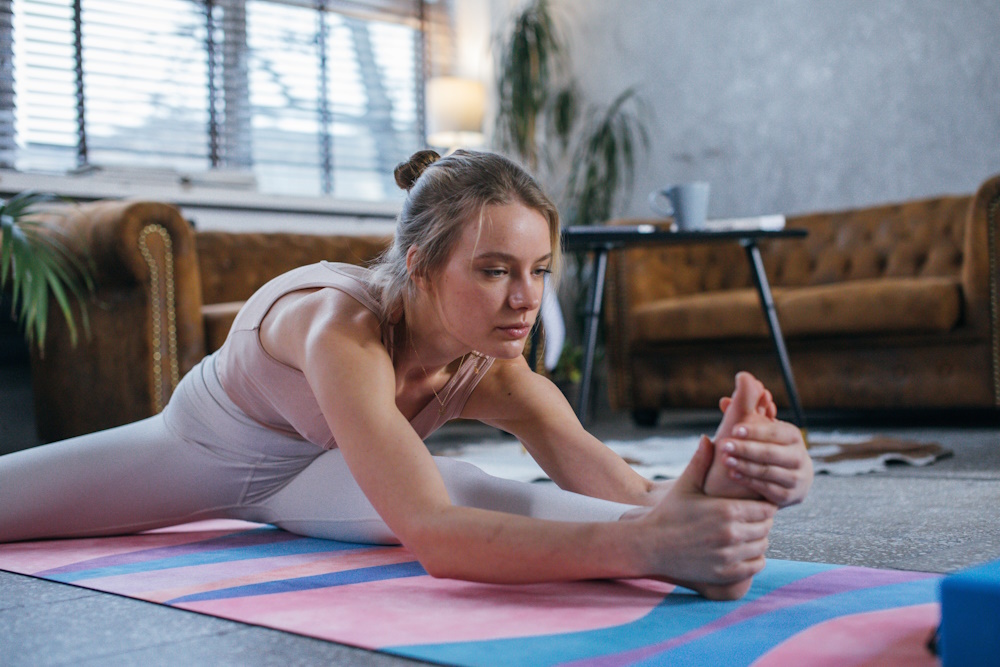Pilates is a highly effective and popular method for athletes looking to improve their performance and overall well-being. Its emphasis on core strength, flexibility, balance, and body awareness makes it a valuable addition to an athlete’s training regimen. In this discussion, we will explore the benefits of Pilates for athletes and how it can enhance their physical capabilities.
The Benefits of Pilates for Athletes
Pilates offers a range of benefits that can significantly improve an athlete’s performance and overall fitness. Here are some key advantages:
1. Core Strength: Pilates places a strong emphasis on core strength. A strong core is essential for maintaining stability, proper alignment, and transferring power between the upper and lower body. Athletes, from runners to weightlifters, rely on their core strength for improved performance.
2. Flexibility: Pilates incorporates stretches and movements that enhance flexibility. Increased flexibility can improve an athlete’s range of motion, reducing the risk of injuries and optimizing performance in sports like gymnastics, martial arts, and swimming.
3. Balance and Coordination: Many Pilates exercises require balance and precise movements, which can improve an athlete’s overall coordination and proprioception. This is especially beneficial for sports that demand agility and balance, such as skiing, surfing, and tennis.
4. Body Awareness: Pilates promotes a deep connection between the mind and body. Athletes who are more in tune with their bodies can make quicker and more precise adjustments in their movements, leading to better performance.
5. Injury Prevention and Rehabilitation: Pilates exercises can help prevent common sports injuries by strengthening the muscles and joints. It’s also a valuable tool for rehabilitation, aiding athletes in their recovery from injuries.
What type of Pilates is best for athletes?
When it comes to Pilates for athletes, the choice between mat-based Pilates and equipment-based Pilates can depend on the athlete’s specific goals, sport, and preferences. Both types offer unique benefits:
1. Mat-based Pilates: Mat Pilates is a versatile form of Pilates that focuses on exercises performed on the floor with minimal equipment. It’s a portable option that athletes can practice at home or on the go. Mat Pilates can be an excellent choice for athletes looking to develop core strength and flexibility.
2. Equipment-based Pilates: Equipment-based Pilates, which includes using machines like the reformer, Cadillac, and chair, offers additional resistance and support. The equipment can be adjusted to provide various levels of challenge, making it suitable for athletes at different fitness levels. Athletes can target specific muscle groups and experience greater variety in their workouts.
The best choice depends on the athlete’s specific needs. Many athletes find that a combination of mat and equipment-based Pilates provides a well-rounded approach to their training. For instance, mat Pilates can serve as an accessible daily routine, while equipment-based Pilates can offer more intense and targeted workouts a few times a week.
Is Reformer Pilates good for athletes?
Reformer Pilates can be highly beneficial for athletes. The reformer is a specialized Pilates machine that allows for a wide range of exercises with adjustable resistance. Athletes can experience several advantages by incorporating reformer Pilates into their training:
1. Targeted Strength Training: The reformer machine provides adjustable resistance through springs and straps, allowing athletes to target specific muscle groups. This targeted approach can be invaluable for building strength in areas relevant to their sport.
2. Improved Range of Motion: Reformer exercises often involve movements that promote increased range of motion and flexibility. Athletes, particularly those in sports requiring dynamic movements, can benefit from enhanced flexibility.
3. Enhanced Core Strength: The reformer’s design requires stable core engagement throughout exercises, which strengthens the core muscles essential for stability and power transfer in various sports.
4. Variety and Progression: The reformer offers a wide variety of exercises that can be tailored to an athlete’s specific needs and goals. Athletes can progress by adjusting resistance levels and incorporating more challenging exercises over time.
5. Rehabilitation: The reformer can be useful for athletes recovering from injuries, as it provides support and assistance during exercises while promoting rehabilitation and recovery.
How often should athletes do Pilates?
The frequency of Pilates sessions for athletes can vary based on individual goals, the athlete’s sport, and their existing training regimen. Here are some general guidelines:
1. Consistency: Regularity is crucial for reaping the benefits of Pilates. Athletes can start with 2-3 sessions per week and gradually increase as they become more accustomed to the practice.
2. Complement to Sports Training: Athletes can use Pilates as a complement to their sport-specific training. The frequency may depend on the sport, with some athletes incorporating Pilates as part of their daily routine.
3. Pre- and Post-Workout: Athletes may benefit from incorporating short Pilates sessions before or after their regular workouts. Pre-workout Pilates can activate the core and warm up the body, while post-workout Pilates can help with recovery and injury prevention.
4. Progression: Athletes can progressively increase the intensity and frequency of Pilates as they advance in their training, working with an experienced instructor to tailor sessions to their evolving needs.
In summary, Pilates is an excellent choice for athletes looking to enhance their performance and overall fitness. It offers core strength, flexibility, balance, coordination, and injury prevention benefits. The choice between mat-based and equipment-based Pilates depends on individual goals and preferences, with many athletes finding a combination of both to be effective. Reformer Pilates, in particular, can offer targeted strength training and flexibility benefits. The frequency of Pilates sessions can vary but should be consistent and tailored to the athlete’s specific needs and sport.
